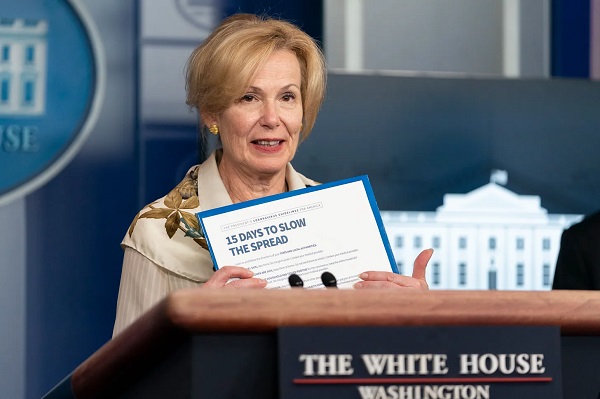Alberta
Alberta politician hosts sold-out conference on COVID jab harms with Drs. Trozzi, Bridle
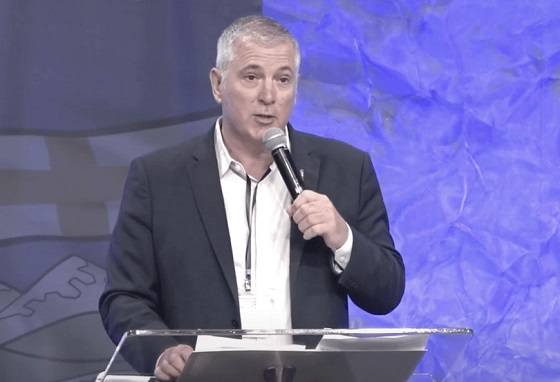
Calgary-Lougheed MLA Eric Bouchard Alberta Politics / YouTube
From LifeSiteNews
The ‘Injection of Truth’ event organized by MLA Eric Bouchard included well-known speakers critical of COVID mandates, including Dr. Byram Bridle, Dr. William Makis, canceled doctor Mark Trozzi and pediatric neurologist Eric Payne.
An event hosted by a newly elected member of Alberta’s legislative assembly, which featured prominent doctors and experts speaking out against COVID vaccines and mandates, sold out in Calgary this week
Dubbed “An Injection of Truth,” the event took place on June 18 in Calgary and was hosted by the Calgary-Lougheed Constituency Association of the United Conservative Party president Darrell Komick and MLA Eric Bouchard.
The event was geared around the question, “What’s scientifically different today than 2020? And why are an excess number of Alberta’s children dying?”
“Many doctors and medical experts are saying that the COVID mRNA shots that began use in 2021 in Alberta are unsafe and ineffective for children. An Injection of Truth Town Hall is hosting world-class experts to present the medical and scientific case for stopping COVID mRNA injections in children,” the event’s website noted.
The “Injection of Truth” event included well-known speakers critical of COVID mandates and the shots, including Dr. Byram Bridle, Dr. William Makis, canceled doctor Mark Trozzi and pediatric neurologist Eric Payne.
Bridle, who has been reported on by LifeSiteNews extensively, is an Ontario virologist, vaccinologist, immunologist, and associate professor of viral immunology in the Department of Pathobiology at the University of Guelph. He is critical of the COVID shots and said at the event that all his concerns regarding the COVID shots have been “repeatedly proven correct by scientific data.”
“COVID is less dangerous than the flu for children,” he said.
He noted how research shows “multi-dosing with lipid nanoparticles” that the mRNA jabs use “is dangerous,” explaining how years ago this was the reason the use of lipid nanoparticles was “abandoned” by Big Pharma except for a “few” who “clung onto it.”
Bridle blasted the fact that when it comes to the COVID shots, the fact that we are “up to 10” COVID shots shows how ineffective they are.
“It was supposed to be a one-and-done technology, not 10 doses,” he said.
Payne noted that when it comes to public health officials, it seems “they’re trying to pretend they never said these things” because the “lies are coming down from the very top.”
Payne observed that he knows of not one healthy child who died from COVID, even though the government messaging was that kids as young as six months old should get the shot.
He noted that when it comes to the COVID shots, they are not even “vaccines.”
“To call these things vaccines, it’s just not the truth,” he said, referring to them as an experimental drug based on mRNA technology.
Payne and four other Alberta doctors launched a lawsuit against Alberta Health Services’ (AHS) mandatory workplace COVID jab policy in October 2021.
Trozzi, who was stripped of his medical license by the College of Physicians and Surgeons of Ontario for speaking out against the COVID shots and was a guest speaker at the LifeSiteNews 2023 general meeting, observed that the COVID crisis would have been over sooner if everyone just lived their normal lives.
He said all that was needed was for the vulnerable to be isolated and that it was important kids were exposed to the virus to build immunity. He observed how mortality rates for kids were already on the rise before the COVID shots came out due to isolation causing damage to their immune systems.
The COVID shots were heavily promoted by the federal government as well as all provincial governments in Canada, with the Alberta government under former Premier Jason Kenney being no exception.
The mRNA shots themselves have been linked to a multitude of negative and often severe side effects in children.
As for AHS, it still is promoting the COVID shots for babies as young as six months old, as recently reported by LifeSiteNews.
The full event has now been posted to YouTube and is available for all to watch freely.
Conversation about COVID jabs ‘should have happened four years ago,’ says politician
MLA Eric Bouchard spoke with LifeSiteNews about the “Injection of Truth” event, saying that open discussion about the COVID injections is a conversation that “should have happened” four years ago.
He noted that the speakers invited to the event all “presented their own data, factual peer-reviewed data,” and that “they were all canceled” in some way for simply asking questions.
Bouchard said that his event had the full support of his local constituency board.
“They voted 22-1 to championing the Town Hall,” he said, which was attended by UPC president Rod Smith.
Bouchard noted that he did have pushback from the “mainstream media” over the event, but the decision to host the conference never wavered.
Bouchard said that despite being invited to the event as well as a press conference, members of the mainstream media failed to show up, which he says shows how one-sided they were and still are in relation to asking hard questions about COVID jabs and mandates.
Bouchard became a first-time UCP MLA in 2023 after an election that saw UCP leader Danielle Smith elected as premier of the province on a pro-freedom and pro-business platform. Smith’s election followed the resignation of Premier Jason Kenney, who suffered low approval ratings after implementing a number of COVID-related mandates, including lockdowns.
Ironically, Bouchard is now the MLA representing the same riding Kenney represented until stepping down as party leader. Bouchard is a former restaurant owner who was forced to close in part because of the Kenney-mandated COVID lockdowns.
Bouchard, as reported by LifeSiteNews earlier this year, has praised the anti-mandate Freedom Convoy protesters for standing up for what “was right.”
Under Kenney, thousands of nurses, doctors, and other healthcare and government workers lost their jobs for choosing to not get the jabs, leading Smith to say – only minutes after being sworn in – that over the past year the “unvaccinated” were the “most discriminated against” group of people in her lifetime.
Alberta
Open letter to Ottawa from Alberta strongly urging National Economic Corridor
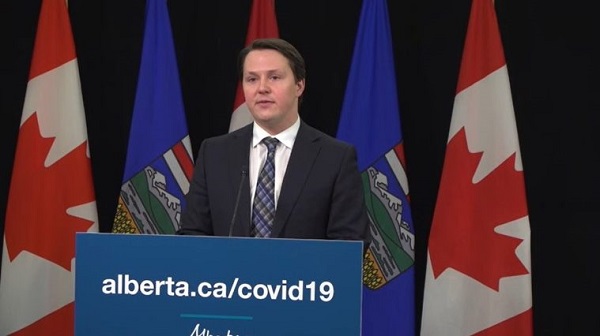
Canada’s wealth is based on its success as a trading nation. Canada is blessed with immense resources spread across a vast country. It has succeeded as a small, open economy with an enviable standard of living that has been able to provide what the world needs.
Canada has been stuck in a situation where it cannot complete nation‑building projects like the Canadian Pacific Railway that was completed in 1885, or the Trans Canada Highway that was completed in the 1960s. With the uncertainty of U.S. tariffs looming over our country and province, Canada needs to take bold action to revitalize the productivity and competitiveness of its economy – going east to west and not always relying on north-south trade. There’s no better time than right now to politically de-risk these projects.
A lack of leadership from the federal government has led to the following:
- Inadequate federal funding for trade infrastructure.
- A lack of investment is stifling the infrastructure capacity we need to diversify our exports. This is despite federally commissioned reports like the 2022 report by the National Supply Chain Task Force indicating the investment need will be trillions over the next 50 years.
- Federal red tape, like the Impact Assessment Act.
- Burdensome regulation has added major costs and significant delays to projects, like the Roberts Bank Terminal 2 project, a proposed container facility at Vancouver, which spent more than a decade under federal review.
- Opaque funding programs, like the National Trade Corridors Fund (NTCF).
- Which offers a pattern of unclear criteria for decisions and lack of response. This program has not funded any provincial highway projects in Alberta, despite the many applications put forward by the Government of Alberta. In fact, we’ve gone nearly 3 years without decisions on some project applications.
- Ineffective policies that limit economic activity.
- Measures that pit environmental and economic objectives in stark opposition to one another instead of seeking innovative win-win solutions hinder Canada’s overall productivity and investment climate. One example is the moratorium on shipping crude through northern B.C. waters, which effectively ended Enbridge’s Northern Gateway proposal and has limited Alberta’s ability to ship its oil to Asian markets.
In a federal leadership vacuum, Alberta has worked to advance economic corridors across Canada. In April 2023, Alberta, Saskatchewan and Manitoba signed an agreement to collaborate on joint infrastructure networks meant to boost trade and economic growth across the Prairies. Alberta also signed a similar economic corridor agreement with the Northwest Territories in July 2024. Additionally, Alberta would like to see an agreement among all 7 western provinces and territories, and eventually the entire country, to collaborate on economic corridors.
Through our collaboration with neighbouring jurisdictions, we will spur the development of economic corridors by reducing regulatory delays and attracting investment. We recognize the importance of working with Indigenous communities on the development of major infrastructure projects, which will be key to our success in these endeavours.
However, provinces and territories cannot do this alone. The federal government must play its part to advance our country’s economic corridors that we need from coast to coast to coast to support our economic future. It is time for immediate action.
Alberta recommends the federal government take the following steps to strengthen Canada’s economic corridors and supply chains by:
- Creating an Economic Corridor Agency to identify and maintain economic corridors across provincial boundaries, with meaningful consultation with both Indigenous groups and industry.
- Increasing federal funding for trade-enabling infrastructure, such as roads, rail, ports, in-land ports, airports and more.
- Streamlining regulations regarding trade-related infrastructure and interprovincial trade, especially within economic corridors. This would include repealing or amending the Impact Assessment Act and other legislation to remove the uncertainty and ensure regulatory provisions are proportionate to the specific risk of the project.
- Adjusting the policy levers that that support productivity and competitiveness. This would include revisiting how the federal government supports airports, especially in the less-populated regions of Canada.
To move forward expeditiously on the items above, I propose the establishment of a federal/provincial/territorial working group. This working group would be tasked with creating a common position on addressing the economic threats facing Canada, and the need for mitigating trade and trade-enabling infrastructure. The group should identify appropriate governance to ensure these items are presented in a timely fashion by relative priority and urgency.
Alberta will continue to be proactive and tackle trade issues within its own jurisdiction. From collaborative memorandums of understanding with the Prairies and the North, to reducing interprovincial trade barriers, to fostering innovative partnerships with Indigenous groups, Alberta is working within its jurisdiction, much like its provincial and territorial colleagues.
We ask the federal government to join us in a new approach to infrastructure development that ensures Canada is productive and competitive for generations to come and generates the wealth that ensures our quality of life is second to none.
-
Devin Dreeshen
Devin Dreeshen was sworn in as Minister of Transportation and Economic Corridors on October 24, 2022.
Alberta
Premier Smith and Health Mininster LaGrange react to AHS allegations
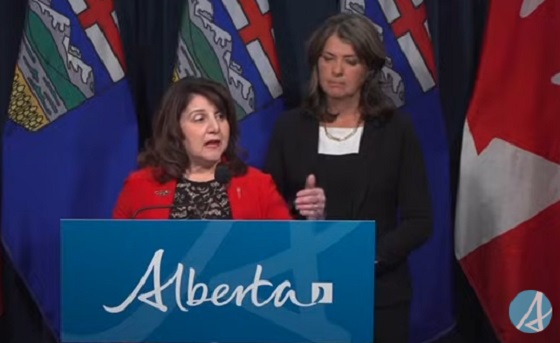
Alberta Premier Danielle Smith and Health Minister Adriana LaGrange respond to allegations of political interference in the issuing of health-care contracts.
-
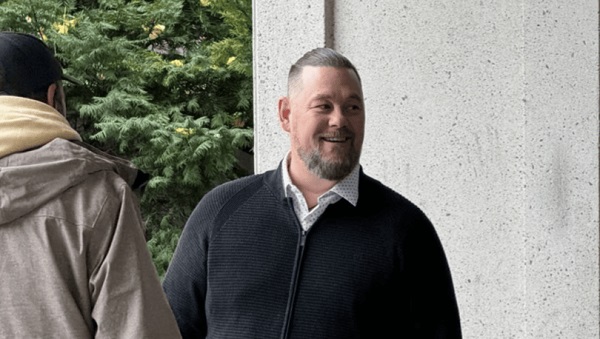
 COVID-192 days ago
COVID-192 days agoRed Deer Freedom Convoy protestor Pat King given 3 months of house arrest
-
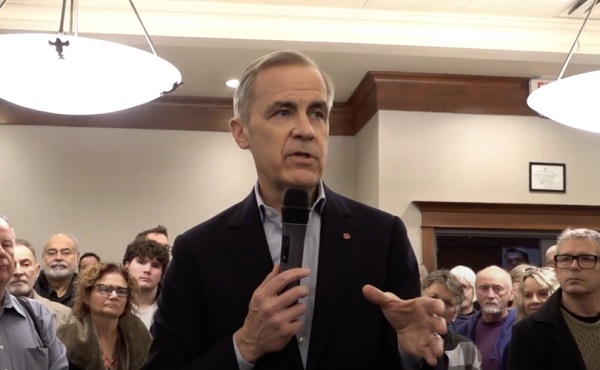
 Carbon Tax2 days ago
Carbon Tax2 days agoMark Carney has history of supporting CBDCs, endorsed Freedom Convoy crackdown
-

 Censorship Industrial Complex1 day ago
Censorship Industrial Complex1 day agoBipartisan US Coalition Finally Tells Europe, and the FBI, to Shove It
-
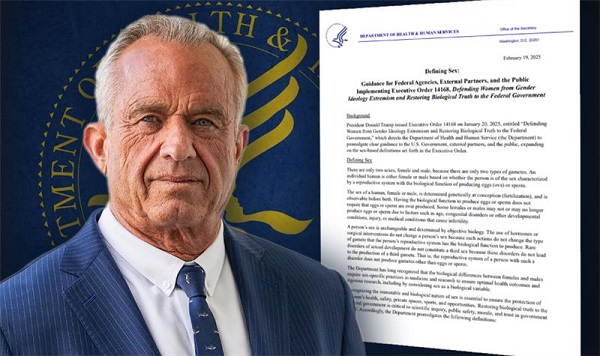
 Health2 days ago
Health2 days agoTrump HHS officially declares only two sexes: ‘Back to science and common sense’
-

 International2 days ago
International2 days agoSenate votes to confirm Kash Patel as Trump’s FBI director
-
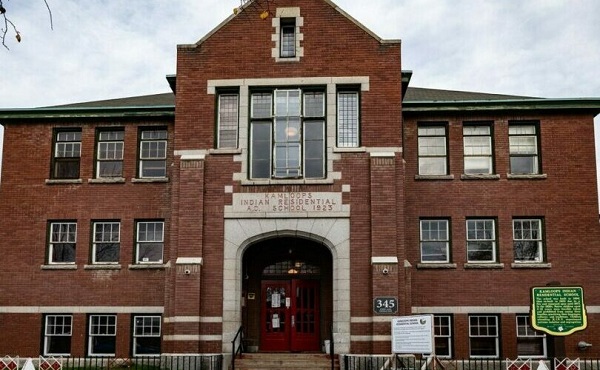
 Indigenous12 hours ago
Indigenous12 hours agoTrudeau gov’t to halt funds for ‘unmarked graves’ search after millions spent, no bodies found
-

 Business2 days ago
Business2 days agoGovernment debt burden increasing across Canada
-
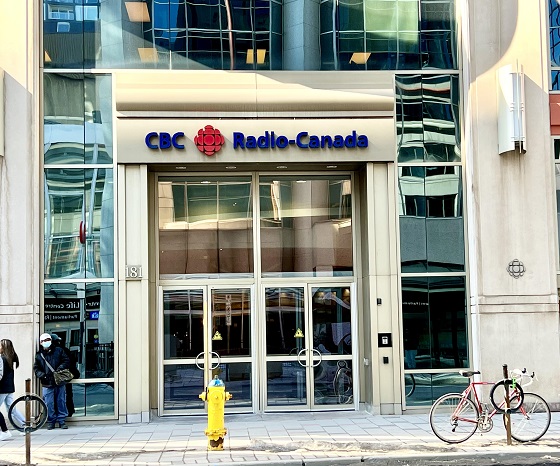
 Business1 day ago
Business1 day agoFederal Heritage Minister recommends nearly doubling CBC funding and reducing accountability




